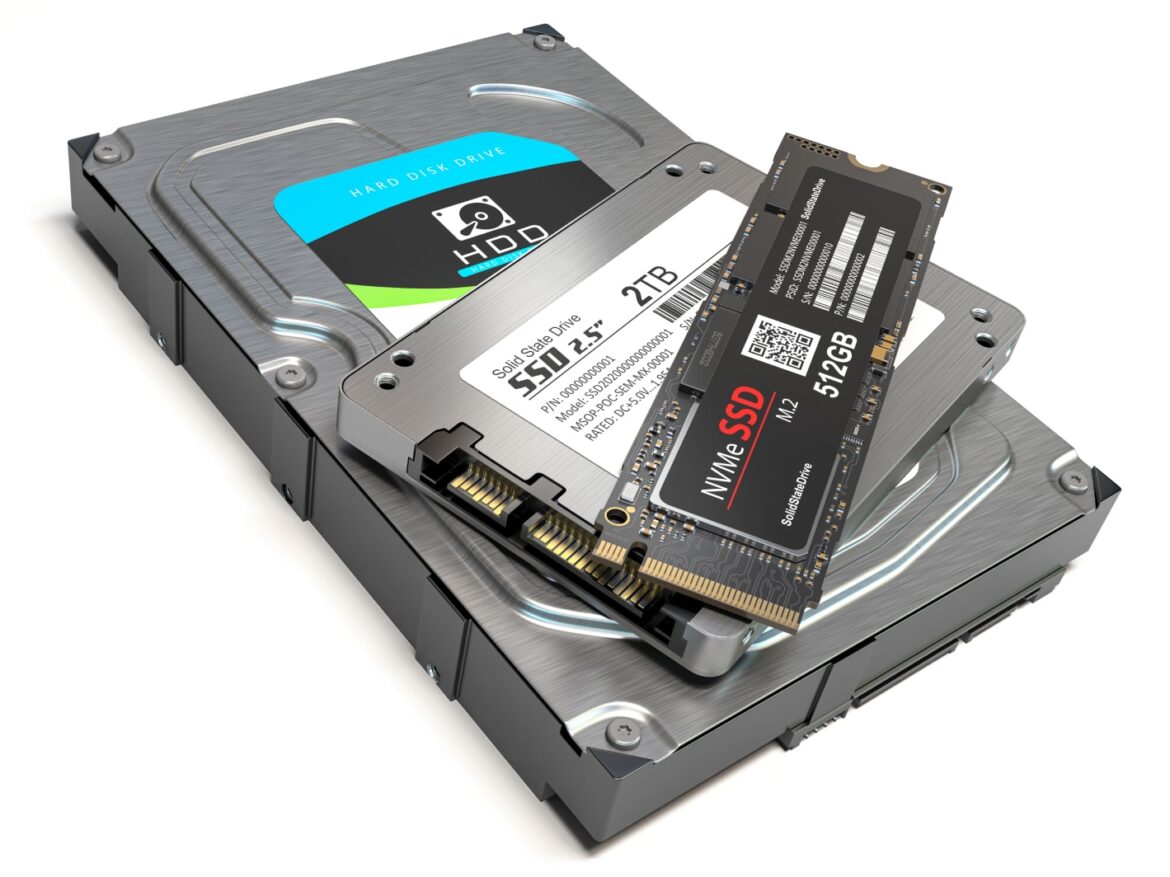756
Small, fast, expensive: SSDs are the alternative to traditional HDDs. Although both types look similar, there are differences between them. In this article, you will find out what these differences are and whether you should opt for a solid state drive (SSD) or a hard disk drive (HDD).
HDD or SSD: Differences in how they work
The two types of hard drives, HDD and SSD, work in completely different ways:
- The classic HDD consists of one or, in most cases, several magnetic disks and a read head for each disk. The magnetic disks rotate during operation. The read head (attached to a swing arm) moves over the disks and reads the stored data.
- An SSD, on the other hand, consists of many flash memories, similar to those used in USB sticks. This means that there are no mechanical parts in an SSD.
- For those who are particularly interested: We explain how SSDs and HDDs work in detail in separate articles.
HDD vs. SSD: Advantages of SSDs
For several years now, SSDs seem to be slowly but surely overtaking classic HDDs. This is mainly due to its many advantages:
- The SSD has no mechanical parts, which makes it significantly more robust than the HDD. It can also withstand drops without any problems, whereas with an HDD you have to expect defects and data loss.
- The lack of mechanical parts also means that SSDs are virtually silent. HDDs, on the other hand, hum when in operation. This is particularly noticeable in notebooks and PCs with thin casings.
- The most important advantage of SSDs is that they work significantly faster than traditional hard drives. As a result, PCs and notebooks with SSDs start up noticeably faster and up to twice as fast as those with traditional hard drives. Files and programs even open up to four times faster.
- Last but not least, SSDs are lighter than HDDs. This makes them particularly suitable for mobile devices. They are also usually more efficient, meaning they consume significantly less power. This also makes them attractive for mobile devices, as it extends battery life.
HDD vs. SSD: Advantages of HDD
However, despite their many advantages, SSDs also have some drawbacks. We have summarized these for you here, along with the areas where HDDs still have the edge:
- HDDs are currently (still) considerably cheaper than SSDs. Nevertheless, you can also save a lot with the new type of hard drive. SSDs are now affordable and widely available even for large capacities.
- Furthermore, HDDs offer significantly more storage space. Up to 8 TB is possible, while current SSDs max out at 2 TB.
- In the event of data loss, there is usually still hope with HDDs: the data can often be retrieved using special tools. With an SSD, this is rarely possible.
- That’s why we recommend the SSHD, which combines the advantages of an HDD with those of a fast SSD.

